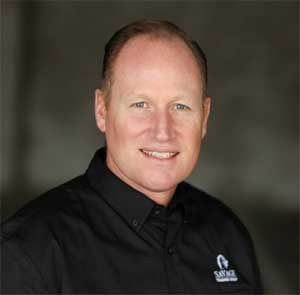
It is vital to prepare and become the best candidate you can be when they’re applying for a law enforcement jobs. Over the next few years, law enforcement as a profession is going to need good men and women, and in great supply. Those of you that are looking at the opportunity to join in any variety of law enforcement careers, I’d really encourage it. The reward of working outdoors, working with people and being able to serve your community and also to see your efforts at times really accomplish great things, it’s very rewarding.
One of the first things you need to have an understanding about how to become a police officer, is that when you are applying for law enforcement jobs is that you are seeking a professional career. That there is a high expectation of professionalism in the standards that you hold yourself to.
Anytime a police officer arrives on scene, as soon as somebody sees an officer, they automatically recognize that here’s the person that’s going to try to take this problem or whatever the challenges of that call are, and they’re going to try to fix it. And like it or not, you’re going to be judged from the minute you arrive in your patrol car, open the door and step out. You’re already starting to represent something that is bigger than yourself.
Law Enforcement is a Professional Job
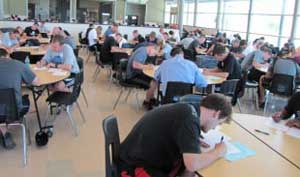
Did you seem to care enough coming into the police test or that first police oral board interview where you at least present yourself showing that you understand that you are going into a job where your image and your sense of professionalism and even your maturity is all going to be glanced at, right off the bat.
The first part of the hiring process is submitting that application. And some agencies will have you submit an application along with a personal history questionnaire or basically a background packet all at the same time. It just depends on the agency. Some agencies will have you do your personal history questionnaire afterwards, after your first oral interview. But right from the application process, there’s a couple of things. Make sure it’s legible. If you’re putting your life story down on the application, or especially when you’re filling out this long detailed questionnaire about your life that’s going to be used for a background, people have to be able to read it for one. And that seems very silly to have to say that, but more times than not, it’s been like, I can’t even read what this person put down. Writing comes with the job. There’s a lot of report writing, there’s a lot of handwriting you have to do, whether it’s filling out a citation or some other triplicate form. People have to know that you can write legibly.
How to fill out the Police Application

It’s hard to learn everything that needed about a candidate just from that they put down on paper. That’s why we the police interview questions and other portions of the hiring process where you can explain yourself. But if you do not put it down on paper and then in a police background check we find something that’s questionable that you didn’t disclose, that’s an automatic disqualifier. I can tell you there are many applicants that I believe were good applicants. And maybe it was they got in a minor fist fight in high school. Words were said, they went behind the bleachers and they had that fist fight, but they didn’t disclose that because they didn’t want to paint a picture on paper that they were some violent person. Well, if that comes out because we talked to somebody from high school, we may ask them, have you ever seen them fight or display of anger? And if that comes out and you didn’t disclose that, I know in our questionnaire it does ask, have you ever been in a physical fight? If you don’t disclose it, that’s an automatically a disqualifier.
Regarding drug use, different jurisdictions have different standards. A lot of agencies have their drug use standards for new hired posted online. If you do your homework, you will be able to find out that the drug policy is for the agency that you are interested in applying with. But I’ve seen people not disclose very minor drug violations, and then they lose the job opportunity because of it. Because that really then comes down to a question of integrity.
Present a Professional Image
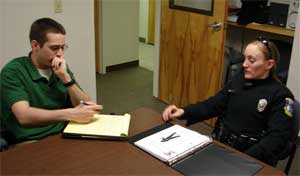
When you meet with a recruiter, they’re probably not going to initially ask you any police interview scenario questions . But they will be making a judgment about regarding if you have been researching the job, if you know something about the city or the jurisdiction that you’re applying for, have you’ve done your homework. They will also be making a judgment about your ability to communicate something about yourself.
Applicants that do really well, whether it’s in the police oral board process, or just that initial contact with the recruiter, is knowing what their core strengths and their characteristics that they bring to this job? Because most people coming in off the street don’t have the actual skills to be a police officer, meaning they haven’t been trained. They will learn the tactical things, the law, and other things when they are going through their training. But, do they do bring with them their strengths, whether it’s leadership, communication, teamwork, all of those things.
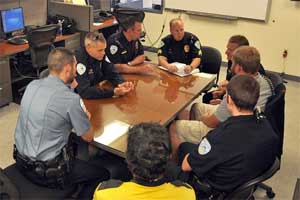
I’ve had recruiters come back from recruiting saying, hey, I’ve got this information on so and so, this man, this woman, and I was really impressed by them. So let’s reach out to them and make sure that we get the application and everything processed for them. So it can start from that very first conversation to a recruit.
It is vital to go into the oral board interview prepared. First off, go into this interview having done some self reflection about not just how much you want the job or how much you think law enforcement is interesting, but really what your core strengths, skill sets and characteristics are that you’re bringing. Know that and a way to represent that to the panel.
Know the Jurisdiction that you are Applying for

You also need to look at the agency that you’re applying for. You should be able to very easily go on their website and pull up, what are the major initiatives that that agency has just implemented? We implemented a new neighborhood policing team and program. So a candidate coming in testing with our agency should at least be able to know about that program. Because it’s a very simple Google search. Get on our website, the information is out there.
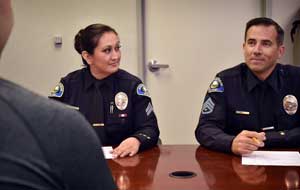
If you can represent that you know the problems that you’re going to be facing with, or that that city or that agency is dealing with, and that you can then weave your own skill sets and strengths and how you’re going to bring something to the table to fix that problem, that, when I’ve seen that sitting on the other side of the world panel, that is an outstanding candidate. And it really shows that you’ve done your homework. Also, because you have done your homework, you’ll have a sense of calm when you’re presenting. Because again, you’ll hear the question, you still need to answer whatever the question is, but in your mind, you can start thinking, oh, this question relates to my integrity, or this relates to my sense of service to others. And so I’m going to answer the question and then I’m going to bring that strength, that skill. I’m going to weave it into my answer.
Not only are those much more complete answers to police oral board questions , because the panel just doesn’t get a flat answer. We also get a glimpse of who you are. And that leaves much stronger impressions than just simply answering the question, or being so nervous and not prepared that you give a very flat answer or no answer to the question at all.
The First Interview Oral Board Question
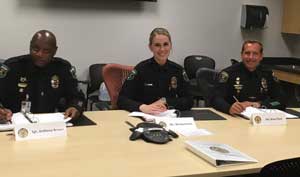
What makes me site up in my chair with a successful candidate is when they give us a brief history of their resume. Because remember, sometimes the panel hasn’t seen your application. You don’t want to spend a lot of time talking about every job that you’ve ever had. You will lose your panel right off the bat. So you just give a short three to five minute resume of your work experience, your education, and all those other things.
You want the panel to know who you are to do that I would suggest picking five strengths, characteristics, whatever, and weave those into your initial presentation, this is what you’re getting. And I would talk about those examples right off the bat and how they correlate to my job. When I worked at this job and even the restaurant industry, which you’d think would have nothing to do with law enforcement, it’s all about customer service.
Don’t go into the interview just memorizing a script, but practice your delivery and practice how you’re going to answer that first question and really polish it. Like my last two interviews as a lieutenant and as a deputy chief, I took the advice of looking at myself in the mirror. Somebody else gave me this advice. I looked at myself in the mirror and I practiced how I was going to represent myself. Because I knew that question was coming up.
The Last Police Interview Question
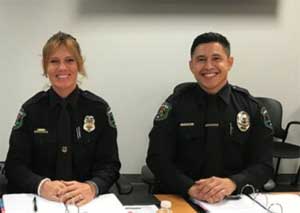
I think of one of my last interviews and how I answered that question. I said as an example, I would close with, I really wanted to talk about mentorship, because mentorship, I got where I am today in my careers because other people took me under their wing, gave me advice. Sometimes told me the cold hard facts that I didn’t want to hear, but they helped develop me. And so I had that skill set. And I wanted this panel to know that part of my job now, in dealing with personnel matters, is also going to have to be able to mentor people and guide them, so they can have success in their careers or where they want to go. None of the questions I was asked in the panel even came close to a mentorship type question, but I took that last one and I summed it up.
How to Close the Oral Board Interview
And when people do that, you can really knock it out of the park. So practice your final response. Think about, even if you’ve hit everything that you wanted the panel, how are you going to close out this interview? And if you can close that out strong, that’ll increase your mark or increase your chances, where you’ve left that impression that you want to. And people, when they leave the room or when you leave that panel, they’re going like, oh man, we need to get him or her. What can we do to get them fast through to this next stage. Having real life examples is critical.
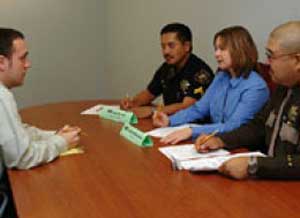
If you talk about how law enforcement is customer service, that agencies need to serve the community so they’re on our side, great. But I want the real world example that you’ve provided that service to somebody. And even if it’s … I remember one person started off talking about their customer service folding t-shirts at a major retail store. And that’s how they started off. And I remember at first thinking, oh really, okay, how is this going to correlate? But then again, they weave into, but my job as I was folding the shirts, wasn’t folding the shirts, my job was, when I saw the customer, engaging them and starting off with a smile. And just really starting to add, I was doing my job before doing shirts. Giving them that, starting that customer service. And then going from there.
That seems like a very low grade answer, not maybe related to law enforcement. But then when they went on to explain what customer service meant, I understood like, hey, this person gets it. And they’ll have to do a little bit more than fold t-shirts and talk to people. But if they really understand what that is and how they can create relationships with people in a very short time span, that’s a good skill to have as a police officer on the street. You can give a textbook answer, have the answer right, and when you leave, I’ll have no idea whether or not you could even do it. But if you bring those real life experiences in, then I’ll know, okay, not only do you have an understanding, but you have the physical capabilities, the cognitive capabilities to complete that task. And that’s so important because there are so many tasks that we’re going to ask you to complete in law enforcement. And it’s never the same.

 Joseph Libowsky,
Joseph Libowsky,